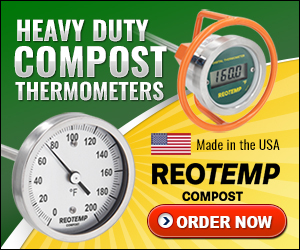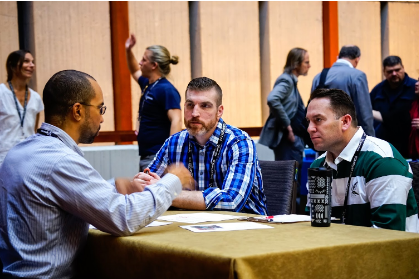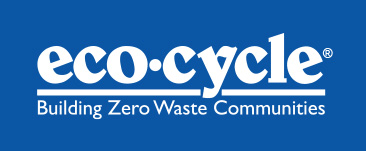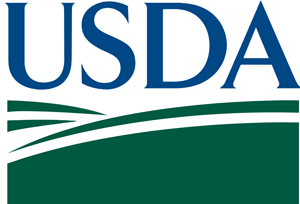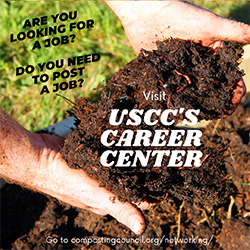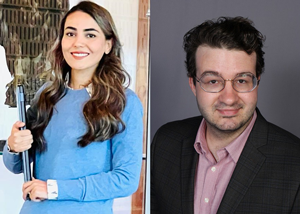 |
||||||||||||||||||||||||||||||||||||||||||||||||||||||||||||||||||||||||||
| Past Issues | Subscribe | Send to a Friend | compostingcouncil.org | ||||||||||||||||||||||||||||||||||||||||||||||||||||||||||||||||||||||||||
As the final edits were being made on this edition, a story broke in the Boston Globe of groundwater contamination by PFAS (per- and polyfluoroalkyl substances) from a non-member company named Mass Natural. The company has accepted a wide range of feedstocks, and when tests confirmed a high level of PFAs in their groundwater, they were ordered by the state to stop selling compost. This is tragic for this family-run business and for the compost industry as well. While the detective work to figure out the contributing source of PFAs is underway, the owners are considering the reality of having to cease operations.
This comes on the heels of the of a bill passed in Maine this spring that disallows land application or distribution of biosolids compost unless it is tested and does not exceed state-set limits. As the compost industry, USCC’s mission is to provide ecosystem benefits—so we are as distressed by these reports as anyone. For that reason, we have been supporting a variety of bills in Congress and states such as California and Vermont banning use of PFAs in everything from cosmetics to ski wax to the compostable packaging where we first encountered the problem. (Note that the Biodegradable Products Institute no longer certifies packaging containing PFAS, and the Food and Drug Administration engineered a voluntary agreement by the largest packagers in the US in 2020 to cease using PFAS in packaging, which would be codified by the federal bills we are supporting. The Compost Manufacturing Alliance (CMA), a federally registered full-fledged certifier, also excludes PFAS packaging from its ASTM +field testing certification program and requires that strict lab methods are used to screen for total fluorine. The PFAS banning legislation is significant because when a ban was put on another chemical in the fluorinated chemicals family, PFOS, its occurrence dropped dramatically and quickly. A full ban is the answer for PFAS and the family of related compounds.
The USCC’s Annual Conference and Tradeshow is the premier professional meeting for composting, organics recycling, and related topics. This year, the theme is Capturing Carbon, Renewing Soil. With California's SB 1383 now mandating organics collections, we think it's fitting that our conference be in sunny California. With a day of workshops and tours, 2 days of educational sessions and a massive exhibit hall, and a half day devoted to equipment demonstration, you will not want to miss this event. Registration will launch in September and the early bird & member rate will be the most affordable way to attend.
Save the Date - Jan. 24-27, 2023
In Vermont, she helped earn a federal grant to renovate an existing composting site to compost food scraps. She climbed piles, informed design plans, and provided insight to recipe development and site logistics. Along with the bricks and mortar of the composting facility, Elly also spearheaded the brand development and outreach campaigns for the new organics diversion program. To further support the success of the composting operation, Elly provided countless hours assisting old and new haulers in anything from customer recruitment, route efficiencies, compost processing options and customer education. Her collaborative and curious nature are her strongest assets and have brought her much success throughout her professional endeavors. USCC and BPI Issue Joint Guidance on Compostable Products and Extended Producer Responsibility (EPR)
The US Composting Council (USCC) and the Biodegradable Products Institute (BPI) have released joint guidance on how best to address compostable products in Extended Producer Responsibility (EPR) programs for packaging. This is part of a new Board approved strategic partnership designed to guide the extensive collaboration that exists between the two organizations. Collaboration on principles for EPR and the work of a joint task force have already contributed to the passing of a first of its kind EPR bill in Colorado that contains provisions specific to composting.
Food is consistently the top material landfilled each year, with the majority of the 4,000+ compost facilities in the US set up to process only yard trimmings. As communities and businesses look to reduce greenhouse gas emissions, they are establishing programs to collect food scraps for composting, requiring infrastructure to change and expand. USCC and BPI support a variety of funding mechanisms to help cover the costs of collecting and processing compostable products associated with food scraps, including EPR programs that collect fees from the sales of compostable products. “We need solutions that reward participation and incentivize investment,” said Rhodes Yepsen, Executive Director of BPI. “Designed well, EPR programs provide a unique opportunity for certified compostable product manufacturers to support the cost of processing their products in food scraps programs. While EPR is not a silver bullet, we’re excited by the potential for these programs to bring together stakeholders and initiate solutions we’ve long needed.”
If you are a young entrapanuer in the organics recycling industry, join our group of Young Professionals to gain access to countless career growth opptunties in your field by networking with collegues, connecting with experts and advocating for technological and legistlative advanements in compost manufacturing.
To get involved with the USCC Young Professionals, fill out the form at the bottom of our committee webpage.
USCC Young Professionals Group leaders has begun reviewing applications for the Membership Scholarship Program. Every year, five young professionals are awarded an Indvidual Soilbuilder level membership with the USCC for volunteering to support YPG committee goals and programs. Qualified candidates will participate in short with YPG Committee Chairs to discuss career interests, workplans and more. The winners will be recognized during the upcoming August webinar. More information about the webinar will be available soon.
USCC Young Professionals got together on Wednesday, July 7, for the monthly virtual happy hour with David Velez, founder of TAWA Compost Food Rescue in Los Angeles County, California.
Did you miss the July YP Happy Hour? Mark your calendar for next month! The YP Happy Hour is held on the first Thursday of every month. Email youngprofessionalsgroup@compostingcouncil.org to recieve a meeting invite.
Pactiv Evergreen (NASDAQ: PTVE) announced the launch of its new “Zero Waste Implementation Guide” at the Green Sports Alliance Summit in Minneapolis. The Guide is a resource to help foodservice establishments improve their waste diversion rates. Recreation venues, stadiums, arenas, colleges and university foodservice programs will benefit from this valuable resource.
Achieving zero waste is a circular solution that helps ensure a sustainable future economically, environmentally and socially. By closing the loop, operators can cut greenhouse gases, manage risk, reduce litter and pollution, reinvest resources, and create value for their operation.
Longtime member Eco-Cycle celebrated its 46th Anniversary this past month with the help of fellow USCC members. Event speakers included Governor Jared Polis and First Gentleman Marlon Reis; U.S. Congressman Joe Neguse; and Zero Waste legislative champions, Senator Kevin Priola, Senator Julie Gonzales, Representative Lisa Cutter, and Senate President Steve Fenberg Eco-Cycle's. Fellow USCC Member A1 Organics was a sponsor of the festivities.
Congraduations, Eco-Cycle!
The new VS420E Hybrid from EDGE Innovate offers significantly reduced CO2 production, reduced operating costs, reduced servicing, and a higher percentage uptime for its operators.
EDGE Innovate’s VS420E Hybrid model replaces the traditional 310Kw CATERPILLAR engine with two 132KW motors that provide the exact same production capacity and torque levels of a diesel/hydraulic drive unit. A small 55Kw diesel engine provides the flexibility of tracking and use of all set up functions. An additional 11Kw auxiliary motor allows for all set up functionality to be available in both “Electric” and “Diesel / Hydraulic” modes.
How are we doing? Let us know in the USCC’s semiannual membership talkback survey. This survey will take approximately 10 min, and you will have the opportunity to win one of two free Half-Day Workshops or Tour of your choice at COMPOST2023 in California. Winners will be announced in July. You will need to enter your member ID number at the end of the survey to enter the drawing. You can find you member id number in the email sent on June 23rd with the subject line “USCC Membership Survey”. If you cannot find your member id number please use your name or email. All survey results will be anonymized and confidential.
The grants will support the development and testing of strategies for planning and implementing municipal compost plans and food waste reduction plans. Projects can be located in all community types including rural, urban and suburban.
Composting and Food Waste Reduction Projects or Activities must address at least one of the following:
• Generate compost
• Increase access to compost for agricultural producers
• Reduce reliance on, and limit the use of, fertilizer
• Improve soil quality
• Encourage waste management and permaculture business development
• Increase rainwater absorption
• Reduce municipal food waste
• Divert residential and commercial food waste from landfills
Seattle Public Utilities (SPU) is requesting proposals for processing yard debris and food scraps into marketable end products. The RFP was posted on June 10, with online pre-submittal conference scheduled for June 23 and proposals due Sept. 9.
Proposals are encouraged for composting or anerobic digesting services, and for all or a portion of the City’s contracted organics processing, handling between approximately 10,000 to 90,000 tons per year. The service period will begin in April 2024 or April 2026 under 6 to 12-year agreements, depending on the proposals selected.
Get your hands on the latest in compost and sustainability jobs by taking a look at the job postings from our member organizations on our website. Plus, your membership gives you the benefit of posting jobs on our Career Center for free. It's easy, so why not take advantage of it?
How to post a job on the USCC website: Step 1: In your membership account go to Account Settings Step 2: Click Content & Features Step 3: Submit an Opening Have questions? Contact Gowri Sundaram at gsundaram@compostingcouncil.org.
The BPI Marketing function connects identified, strategic audiences with content from all three of the organization’s strategic pillars - Certification, Education, and Advocacy. Content development and delivery are done via the organization’s website, direct email communications with Members, social media channels, presentations to Members and non-Members, reports and documents, media placements and op-eds, and an evolving set of additional activities. The Marketing Manager will work closely with the Director of Marketing on all aspects of content development and delivery, along with strategic planning for the Marketing function and the broader organization.
The CREF Board of Trustees has announced the winners of this year's College Compost Research Scholarships for college students. Two students were awarded national scholarships. While the Foundation received many worthwhile applications, these two stood above the rest. The CREF annual scholarship is available to college students to assist with their current research projects. The goal of the scholarship is to encourage more compost-related research projects, a core mission of the Foundation. The students receive not only a financial award but are also invited to present their finished work at the USCC Annual Conference during a CREF research session.
The winners this year are Maryam Saffari Aman and Grant Goedjen. Maryam Saffari Aman is a Ph.D. student in the Department of Environmental Resources Engineering at SUNY College of Environmental Science and Forestry. Her research project will involve characterizing the prevalence and persistence of PFAS in commercially available compost. Grant Goedjen, is a doctoral candidate with the University of Minnesota's Civil, Environmental, and Geo-Engineering Department. Grant’s research project aims to examine degradation or lack thereof of commonly applied pesticides in commercial composting operations.
The 2023 International Compost Awareness Week (ICAW) theme is truly a collaborative and international effort. This year, we teamed up with the International Compost Alliance (ICA) to select a theme that will be used by all the alliance partners: For Healthier Soil, Healthier Food…Compost! This theme was chosen based on the serious world-wide issue of hunger, something that every nation unfortunately experiences.
One of the initiatives of the United Nations Sustainable Development Goals (SDG), is Zero Hunger: End hunger, achieve food security and improved nutrition, and promote sustainable agriculture. As a result of the ICAW committee’s global discussion with our international partners around the world, we all wanted to promote a unified theme, aligning a topic important to each country while emphasizing our work with compost. The chosen 2023 theme best reflects the focus on how compost can have a role to help feed the world by building healthy soils that produce healthier food.
The East Lansing, Michigan COTC coming up Aug. 1-5 is almost full. If you are planning to attend the August course, please register now. The next COTC will be held in Raleigh, NC, Sept. 12-16. Registration for the September course is now open, and the Early Bird rate is still available until Aug. 1. Another training will take place in Florida, Nov. 14-18. Registration for Florida will open up soon.
The Compostable Field Testing Program (CFTP) is a platform for composters to jumpstart field testing of compostable foodware and packaging at their site. The collective disintegration results from all CFTP field tests will be anonymized and released towards the end of 2023 for composters and manufacturers to study and learn from. Any facility considering or already accepting food scraps might consider field testing. Reach out today! A limited number of stipends are currently available for participating composters. Email hello@compostabletesting.org or fill the inquiry form at compostabletesting.org.
By Pierce Louis, Dirt Hugger
Dirt Hugger started as a dream to make an impact, to own a local business, to learn, and to have fun. It began with two test piles in Tyler’s back yard. He’d just attended a week-long training class put on by the US Composting Council taught by Matt Cotton, Jeff Gauge, Will Bakx and Cary Oshins. Newly minted with composting know-how, he was testing recipes. I didn’t have a clue, but I thought it was cool.
We built an office out of a trailer, rented 10 acres for $500/mo, and borrowed a loader from Crestline Construction. We had never driven loaders, but Erik Kerr taught us and told us we’d be proficient after six hours of practice. We wrote grants and put up $26k each with proceeds from our last work together to build our first site. For five years we scraped, struggled, and fought to make good compost. We poured ourselves into learning everything we could, toured every facility, went to every conference. At first we didn’t get paid, and didn’t care - it was awesome.
|
||||||||||||||||||||||||||||||||||||||||||||||||||||||||||||||||||||||||||
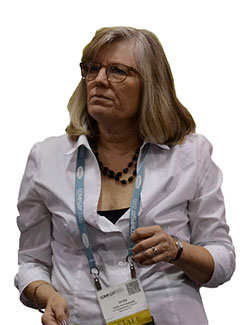
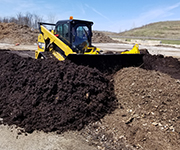
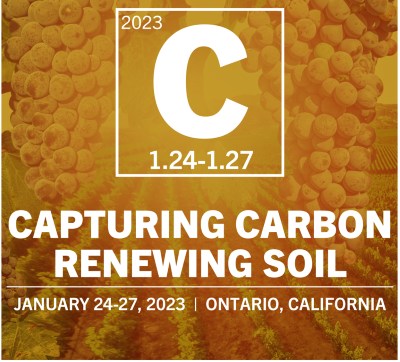
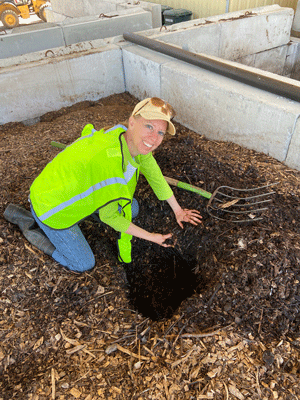 Elly Ventura is with the Vegware US team as the Product & Zero Waste Specialist. Elly brings with her a decade of experience in the solid waste industry where her favorite topic was always organics management. She holds a Compost Operator Certificate from the State of Vermont, a Certified Compost Professional status from the USCC, currently serves on the Board of the Composting Association of Vermont and is an uncompromising messenger of waste reduction practices.
Elly Ventura is with the Vegware US team as the Product & Zero Waste Specialist. Elly brings with her a decade of experience in the solid waste industry where her favorite topic was always organics management. She holds a Compost Operator Certificate from the State of Vermont, a Certified Compost Professional status from the USCC, currently serves on the Board of the Composting Association of Vermont and is an uncompromising messenger of waste reduction practices. 
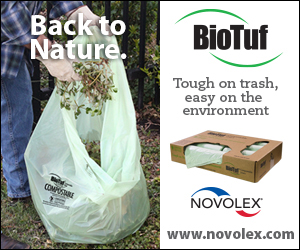
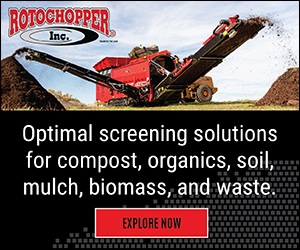
 The US EPA has more than $300 million in grants to give out due to the 2021 Bipartisan Infrastructure Law. As written, the funds are to go to “recycling” infrastructure but there are signals from EPA that composting projects may be considered part of recycling and eligible for two buckets of funding:
The US EPA has more than $300 million in grants to give out due to the 2021 Bipartisan Infrastructure Law. As written, the funds are to go to “recycling” infrastructure but there are signals from EPA that composting projects may be considered part of recycling and eligible for two buckets of funding: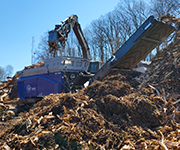
 USCC Memberships Renewed July 1. You can check to see if your membership is valid for the USCC's 2022-23 membership year by visiting this
USCC Memberships Renewed July 1. You can check to see if your membership is valid for the USCC's 2022-23 membership year by visiting this 